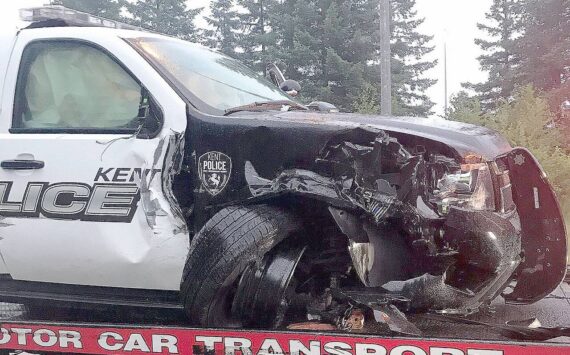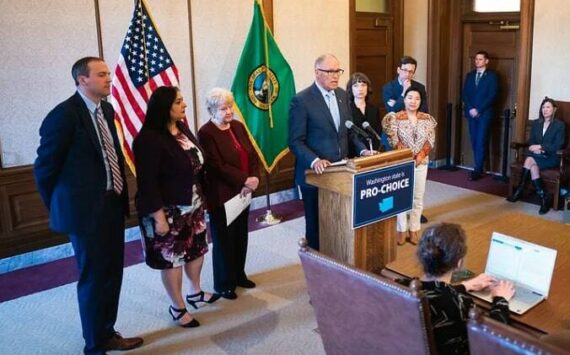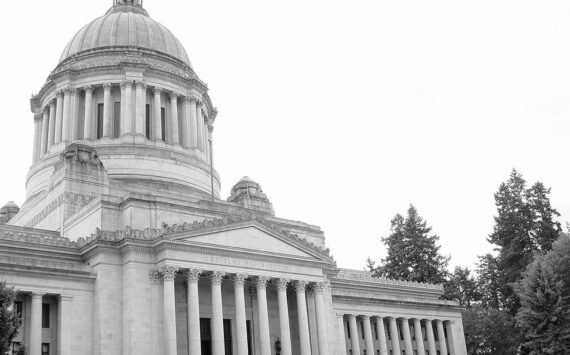A bipartisan group of lawmakers approved a report Thursday telling the state Supreme Court how the state will assure it is providing ample funding to public schools by a 2018 deadline.
There was no debate before the Democratic and Republican lawmakers adopted the 48-page report, most of which highlighted actions taken in the marathon 2017 session to ensure the state complies with mandates of the McCleary school fund lawsuit.
During that session, which ended last week, most legislators expressed confidence they had done enough to convince justices to lift a contempt order and end sanctions exceeding $70 million in fines. That continued to be a refrain voiced Thursday.
“The state will have a pretty strong case,” said Sen. David Frockt, D-Seattle, one of eight legislators on the special panel that adopted the report. “The question is whether it’s enough.”
Thomas Ahearne, attorney for the parents and educators who filed the McCleary lawsuit, said it’s not.
A cursory review makes it “absolutely, positively clear” the state will not be amply funding schools as required, he said.
“The report puts the prettiest face possible on what they did,” he said. “Their numbers do not meet the test. They are providing too little money and providing it too late.”
A lawsuit filed in 2007 by parents and educators led to the 2012 McCleary ruling by the Supreme Court that state funding for education is not adequate, equitable or ample. Justices also found the school funding system unconstitutional because it caused school districts to use local property taxes to pay for basic education.
The court set a Sept. 1, 2018, deadline for the state to fix the problems.
In 2014, the court held the state in contempt for failing to submit a plan laying out the steps to be taken to assure compliance by the deadline. In August 2015, with no plan submitted, the court added a $100,000-a-day sanction.
As part of the original decision, the court required yearly progress reports from the Legislature. A committee of two lawmakers from the Democratic and Republican caucuses in the House and Senate was formed to draft and adopt those updates.
This year’s report, to be filed Monday, notes state funding for public schools has risen from $13.4 billion in the 2011-13 biennium to $22 billion in the current two-year budget and will reach $26.6 billion in the 2019-21 budget when all the McCleary funding measures are completely in place.
Most of the report is on the content of House Bill 2242, the far-reaching education reform and funding bill passed by lawmakers June 30 and signed by Gov. Jay Inslee on July 6.
This legislation deals with how the state will cover the cost of paying teachers and imposes new rules for collection and use of local property tax levies. It also will boost the statewide property tax rate to $2.70 per $1,000 of assessed value to generate revenue the state can use to pay expenses now covered by local school districts.
By passing this bill, “the 2017 Legislature achieved the promise of its earlier enacted reforms,” the report concludes. “It is the intent of the Legislature that these comprehensive revisions to K-12 policy and funding will improve outcomes for all children.”
The report passed on a 7-1 vote with Frockt dissenting.
He said he wanted to include how much more money each school district would get from the state under the plan. He said he also wanted to point out the Legislature did not pass a capital budget with any new funding for school construction.
The report makes no references to the contempt order or the fine.
The Attorney General’s Office is expected to argue for dissolving the contempt order and ending the fine in a separate legal brief to be submitted with the report next week.
“This is not a policy document. This is not a political document. It is a report to the court of what we’ve done,” said House Majority Leader Pat Sullivan, D-Covington, one of the committee members.
Regarding the fine, he said, “It wasn’t something we did in the session. We always assumed it would be part of the ending funding balance” of the budget.
Once the report and legal brief are filed with the Supreme Court, the coalition of parents, teachers and education groups that sued the state will get until Aug. 30 to file its response. The state will then have until Sept. 8 to respond to whatever Ahearne files.
This story originally ran in the Everett Herald.







